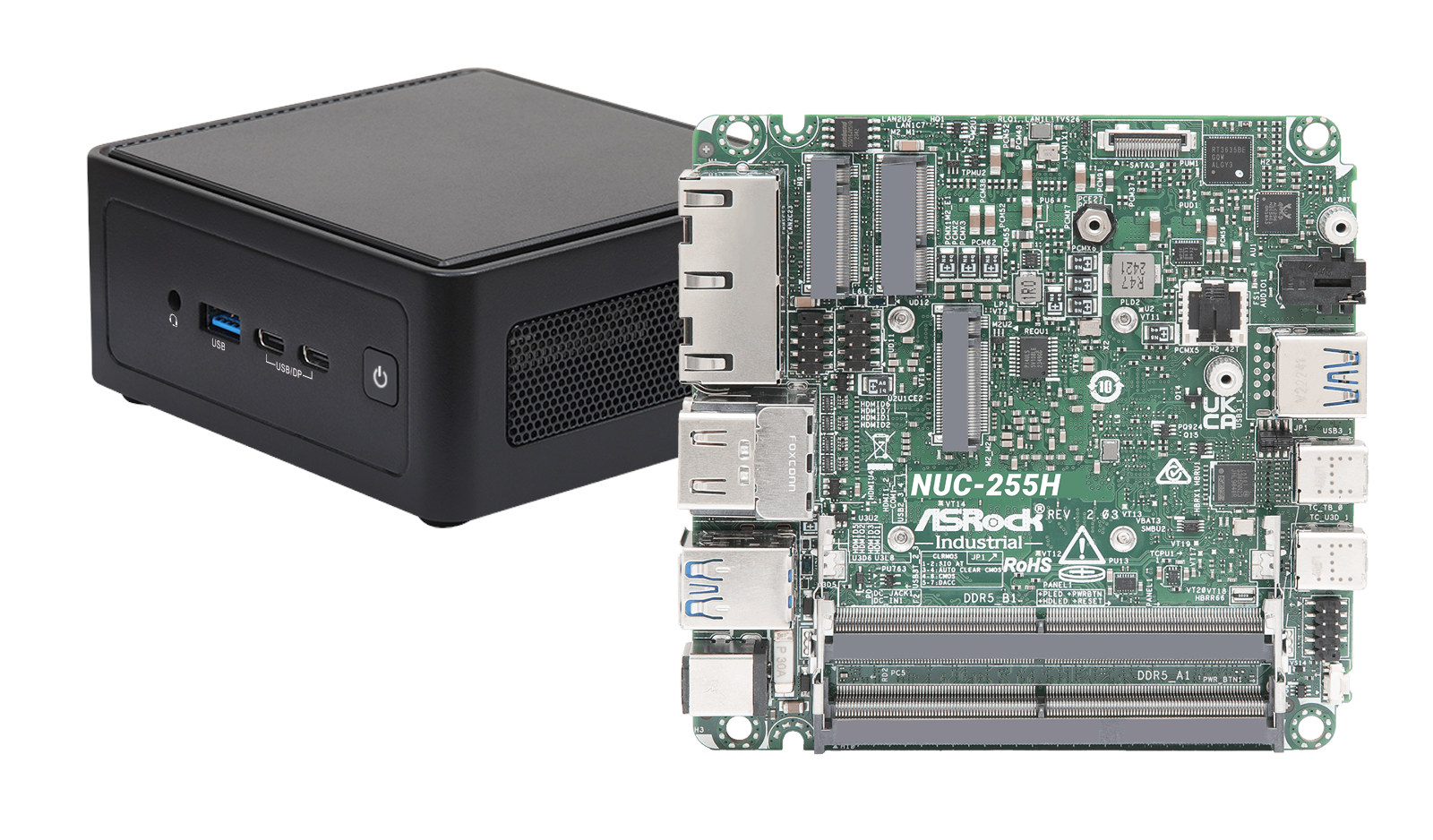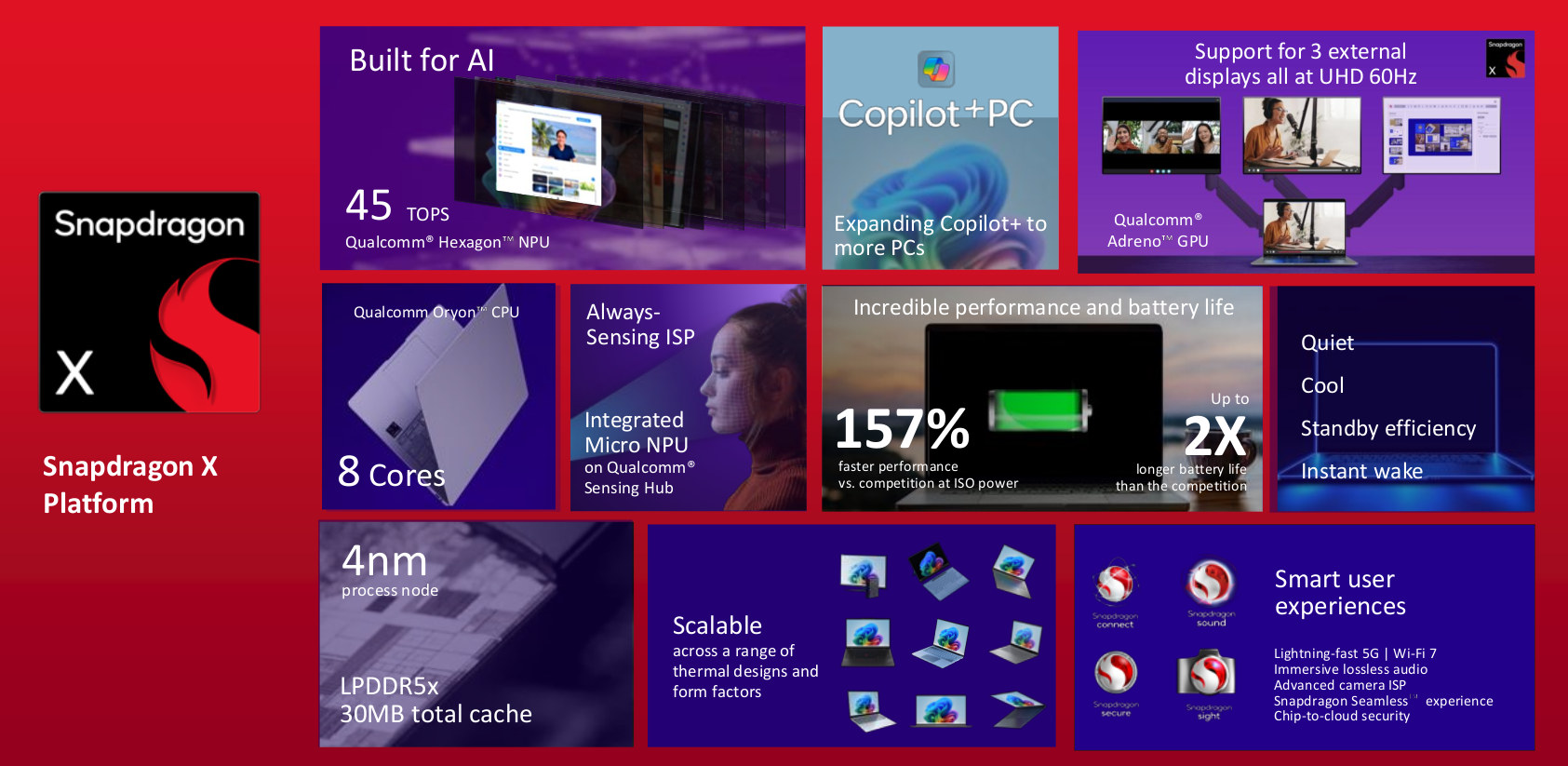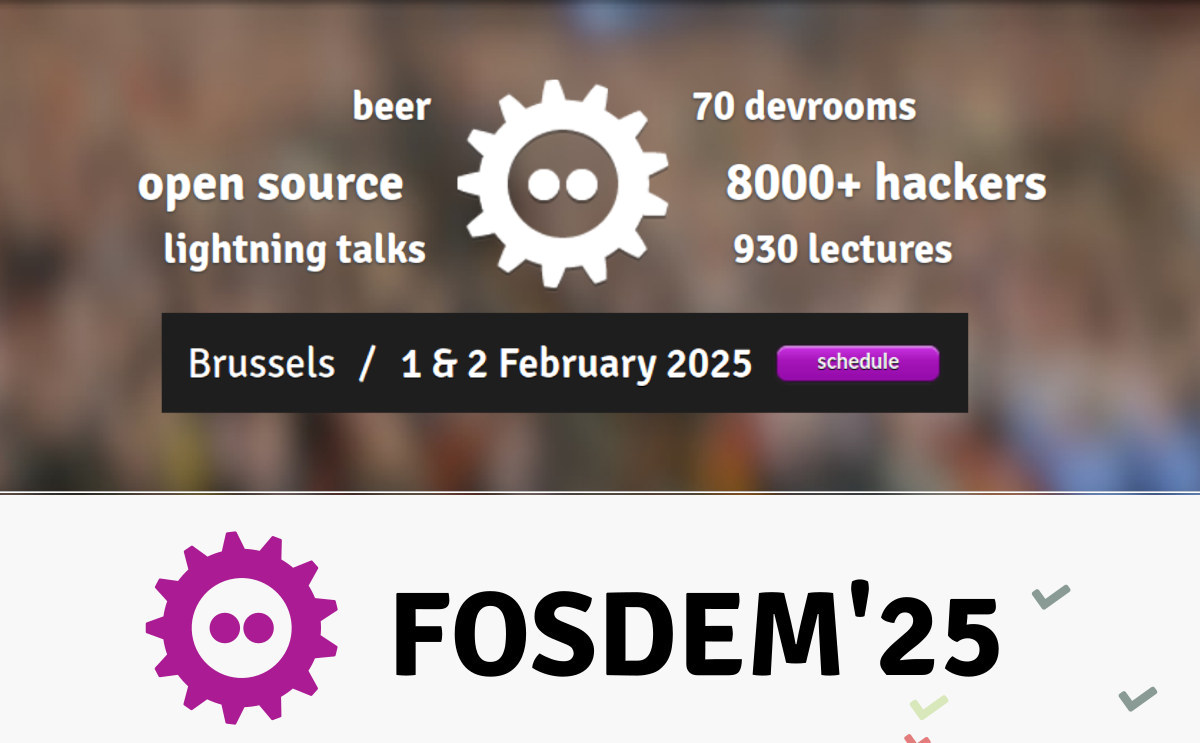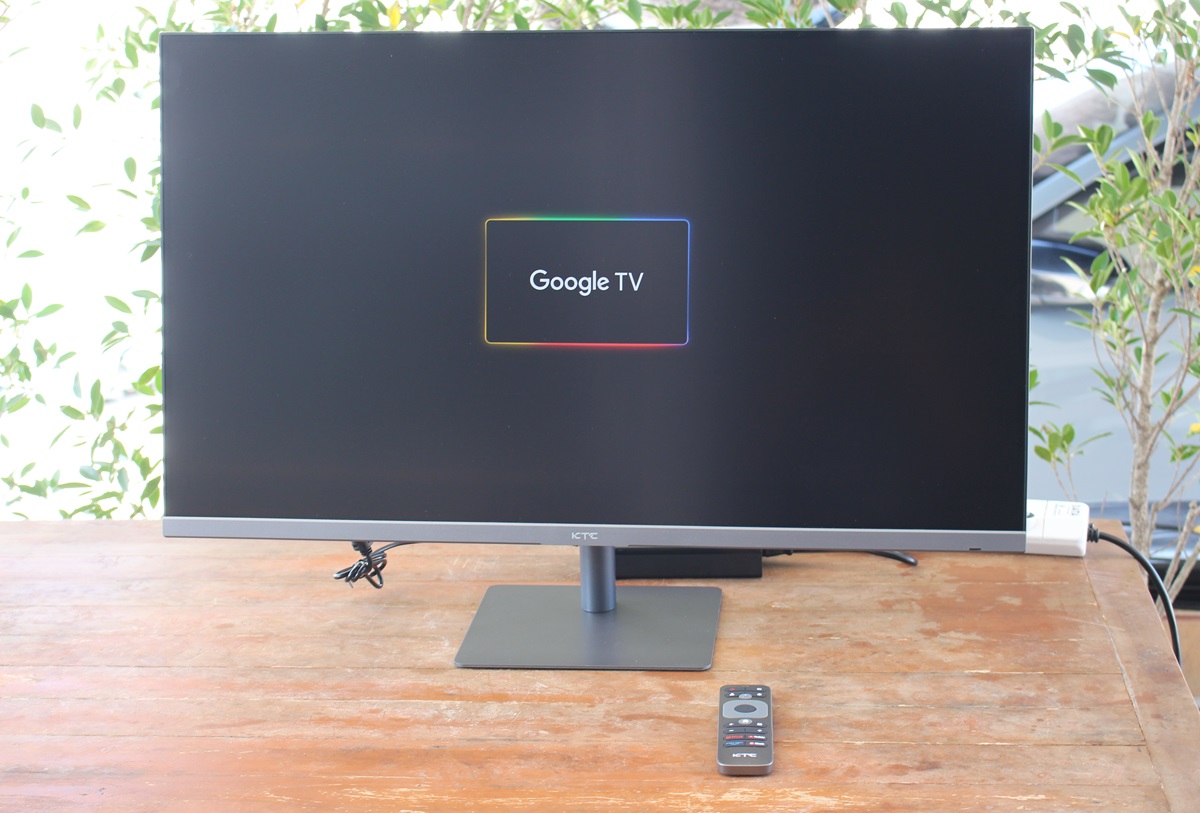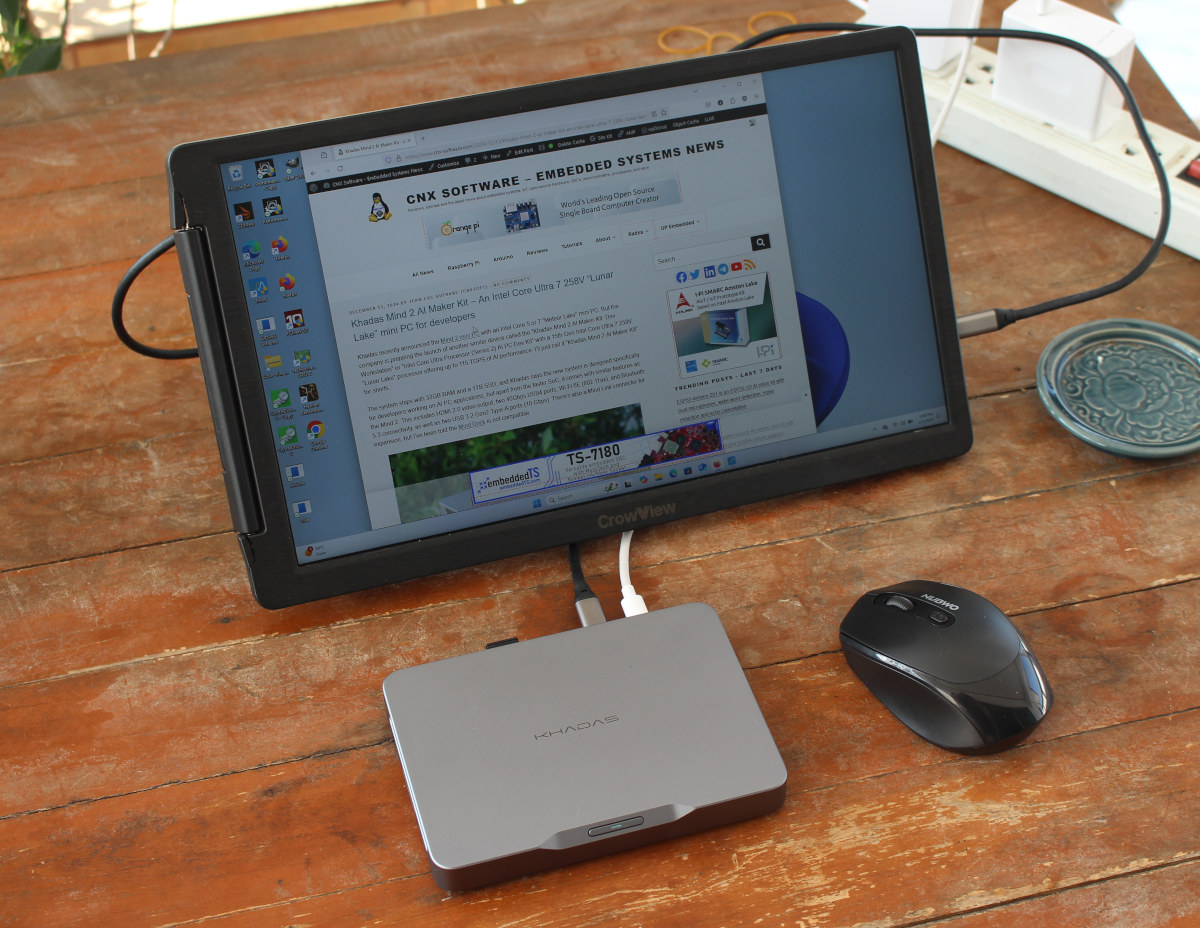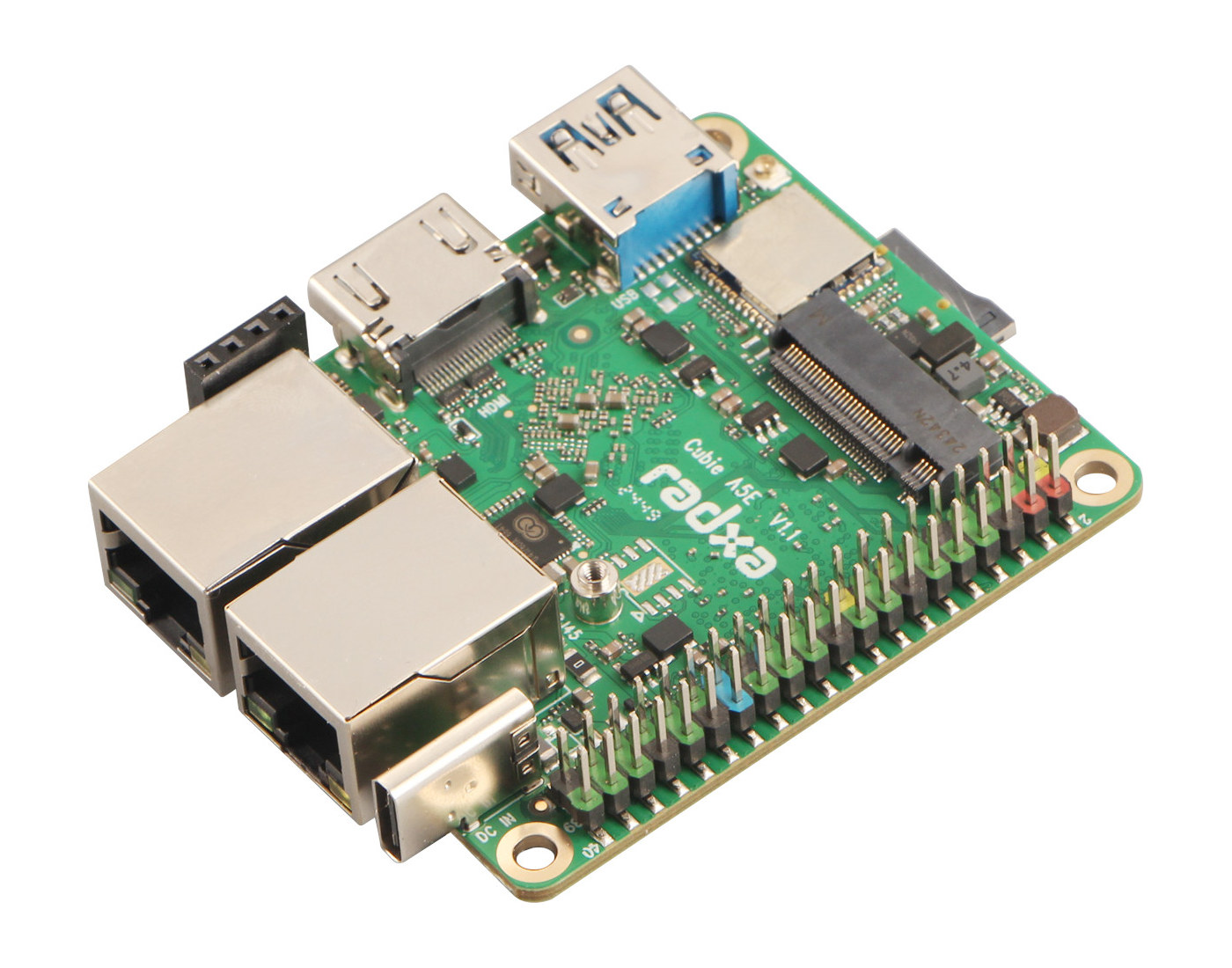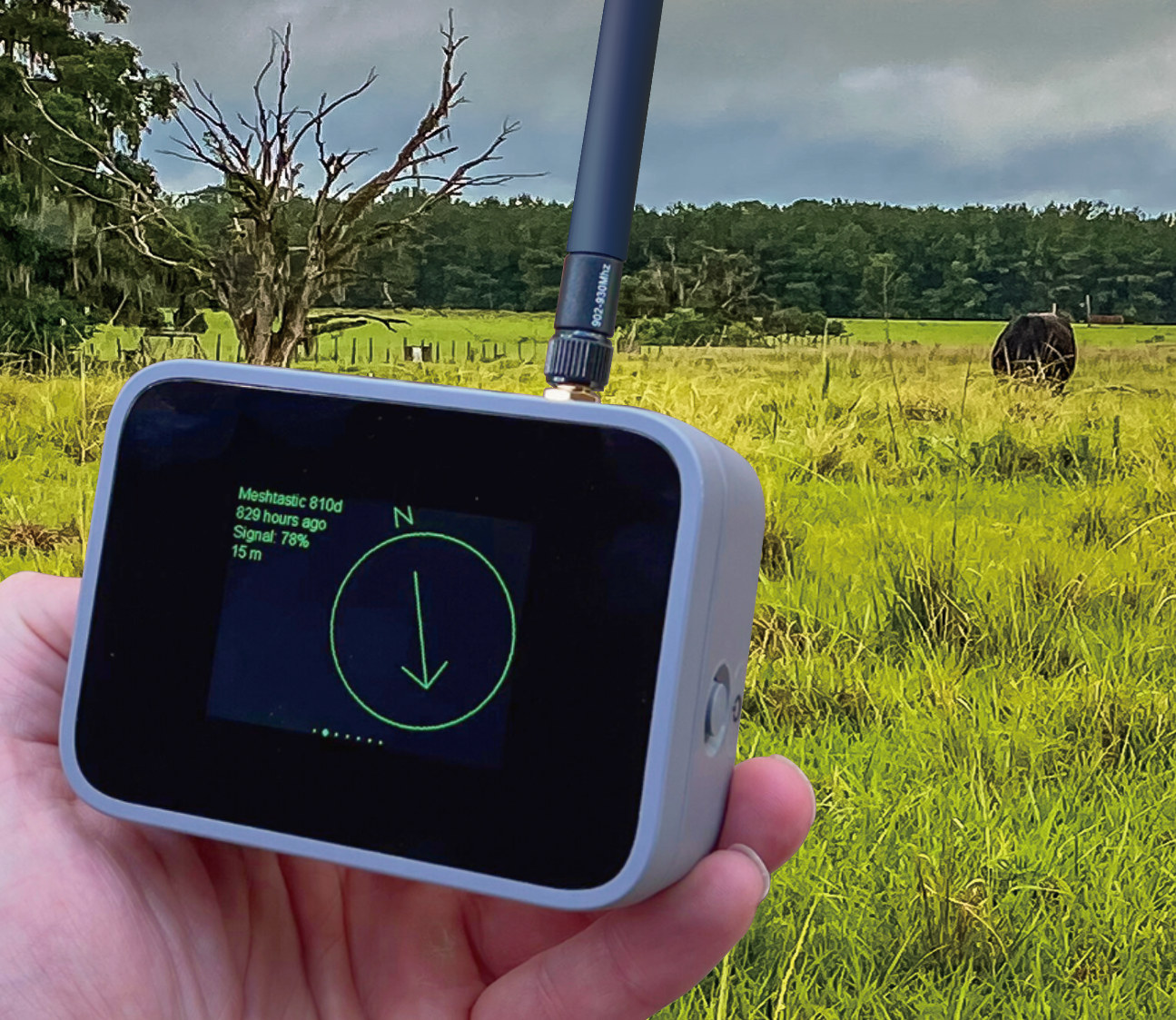Following new SoC announcements by Intel and AMD at CES 2025, ASRock Industrial has launched the NUC(S) Ultra 200 BOX Series and NUC Ultra 200 Motherboard Series powered by Intel Core Ultra 200H Arrow Lake-H processors with of to 99 TOPS of AI inferencing power, and the 4X4 BOX AI300 Series and 4X4 AI300 Motherboard Series based on AMD Ryzen AI 300 processors with up to 50 TOPS of NPU performance. ASROCK NUC(S) Ultra 200 BOX PCs & NUC ULTRA 200 motherboards NUC(S) Ultra 200 specifications: Arrow Lake-H/U SoC (one or the other) Intel Core Ultra 7 255H (6P+8E) processor up to 5.1 GHz with 24MB cache, Intel Arc 140T GPU (74 TOPS), and Intel AI Boost (13 TOPS); PBP: 28 Watts Intel Core Ultra 5 225H (4P+8E) processor up to 4.9 GHz with 18MB cache, Intel Arc 130T GPU (63 TOPS), and Intel AI Boost (13 TOPS); PBP: 28 […]
Qualcomm Snapdragon X octa-core Arm SoC to power $600+ mainstream AI PCs with Copilot+ support
Qualcomm has unveiled the Snapdragon X octa-core Arm SoC at CES 2025 designed for mainstream AI PCs with Copilot+, which should start at $600 and up. This follows the announcements of the high-end 4.3GHz Snapdragon X Elite 12-core SoC in 2023, and the Snapdragon X Plus 10-/8-core processors last year, and should make AI PCs affordable to a wider range of consumers. The new Snapdragon X is clocked at up to 3.0 GHz, still features a 45 TOPS Hexagon NPU, supports NVMe storage, up to 64GB LPDDR5, up to 2560 x 1440 built-in displays, up to three external displays at 4Kp60, and a single camera up to 36MP resolution. Systems based on the new octa-core processor can support WiFi 7, WiFi 6E, and/or 5G LTE connectivity. Qualcomm Snapdragon X (X1-26-100) specifications: CPU – Octa-core 64-bit Armv8 Oryon processor clocked at up to 3.0 GHz (2976 MHz) with 30MB cache GPU […]
FOSDEM 2025 schedule – Embedded, Open Hardware, RISC-V, Edge AI, and more
FOSDEM 2025 will take place on February 1-2 with over 8000 developers meeting in Brussels to discuss open-source software & hardware projects. The free-to-attend (and participate) “Free and Open Source Software Developers’ European Meeting” grows every year, and in 2025 there will be 968 speakers, 930 events, and 74 tracks. Like every year since FOSDEM 2015 which had (only) 551 events, I’ll create a virtual schedule with sessions most relevant to the topics covered on CNX Software from the “Embedded, Mobile and Automotive” and “Open Hardware and CAD/CAM” devrooms, but also other devrooms including “RISC-V”, “FOSS Mobile Devices”, “Low-level AI Engineering and Hacking”, among others. FOSDEM 2025 Day 1 – Saturday 1 10:30 – 11:10 – RISC-V Hardware – Where are we? by Emil Renner Berthing I’ll talk about the current landscape of available RISC-V hardware powerful enough to run Linux and hopefully give a better overview of what to […]
KTC A32Q8 Review – A 32-inch 4K Smart Monitor running Google TV
KTC A32Q8 is a 32-inch 4K UHD monitor running Google TV and supporting up to 3840×2160 resolution with a refresh rate of 60Hz. The monitor takes HDMI 2.1, Display1.4, or USB-C video input, comes with two 5W speakers, supports Dolby Audio and HDR, and offers WiFi and Bluetooth connectivity as well as USB 2.0 ports. A voice remote control is also included for Google TV control and configuration. In this review, we will look at the specifications, go through an unboxing, and test the various features of the KTC A32Q8 Smart Monitor. KTC A32Q8 Smart Monitor specifications Screen Size – 31.5-inch Resolution – 3840×2160 (Ultra HD) Visible area – 697 x 392 mm Panel Type – VA (Vertical Alignment) Aspect Ratio – 16:9 (Widescreen) Refresh Rate – 60Hz Response Time (GtG) – Not specified Brightness 250 cd/m² Brightness (HDR) 250 cd/m² Contrast Ratio 3000:1 (static) Colors 1.07 billion (8-bit + […]
Khadas Mind Maker Kit review – Part 2: Windows 11 Home on an Intel Core Ultra 7 258V AI mini PC
I’ve already gone through the specifications and an unboxing of the “Khadas Mind 2 AI Maker Kit” powered by an Intel Core Ultra 7 258V “Lunar Lake” processor delivering up to 115 TOPS of AI performance and equipped with 32GB LPDDR5X RAM and a 1TB M.2 NVMe SSD in the first part of the review. I’ve now spent time with the mini PC/developer kit which is now simply called “Khadas Mind Maker Kit”, and I will report my experience with the Windows 11 Home 24H2 operating system in the second part of the review testing features, running benchmarks including an AI benchmark, evaluating networking and storage performance, testing the thermal design while under stress, and taking measurements for fan noise and power consumption. It looks like some AI features may finally be usable on Windows, but I’ll test that in a separate post since everything is new and Microsoft Copilot+, […]
Radxa Cubie A5E – A compact Allwinner A527/T527 SBC with HDMI 2.0, dual GbE, WiFi 6, Bluetooth 5.4
Radxa Cubie A5E is an SBC powered by Allwinner A527/T527 octa-core Cortex-A55 SoC and featuring HDMI 2.0, dual GbE, WiFi 6 and Bluetooth 5.4, an M.2 socket for NVMe SSD, USB 3.0 Type-A and USB 2.0 OTG (Type-C) ports, and a 40-pin GPIO form factor in a compact 69x56mm form factor. Long-time readers may remember the Allwinner A10-powered Cubieboard launched in 2012 as an alternative to the hard-to-get Raspberry Pi development board or the various TV boxes like the MeLE A1000 we tried to use to run Linux on Arm hardware. At the time, Allwinner SoCs became popular in SBCs but the company management eventually failed to deliver on software, so some members of CubieTech decided to split and founded Radxa to design Rockchip SBCs that looked more promising in terms of software support. It eventually ended up being a good move after a few difficult first years. However, Allwinner […]
EDATEC ED-SBC3300 is an industrial mini-ITX motherboard for the Raspberry Pi CM5
EDATEC ED-SBC3300 is an industrial mini-ITX motherboard designed for the Raspberry Pi CM5 with plenty of ports and headers including HDMI 2.1 and LVDS display interfaces, seven USB 3.0/2.0 interfaces, up to two Gigabit Ethernet ports, a mini PCIe slot for 4G LTE cellular connectivity, RS232 and RS485 interfaces, and more. Like many Raspberry Pi CM5 hardware platforms, the EDATEC ED-SBC3300 mini-ITX motherboard is not exactly new since it’s basically the same as the EDATEC ED-SBC2300 Raspberry Pi CM4-powered industrial Mini-ITX motherboard, but fitted with a Raspberry Pi CM5 instead. Let’s still have a look at the specifications to see if anything has changed. EDATEC ED-SBC3300 specifications: SKUs – EDATEC ED-SBC3300 series – ED-SBC3310, ED-SBC3311, ED-SBC3320, and ED-SBC3321 SoM – Raspberry Pi CM5 SoC – Broadcom BCM2712 CPU – Quad-core 64-bit Arm Cortex-A76 processor @ 2.4GHz GPU – VideoCore VII GPU with support for OpenGL ES 3.1 graphics, Vulkan 1.2 […]
WisMesh TAP is a battery-powered Meshtastic client with a touchcreen display housed in an IP65-rated enclosure
RAKwireless’ WisMesh TAP is a battery-powered Meshtastic client with an integrated TFT touchscreen display and an IP65-rated enclosure making it suitable for outdoor use. The device supports 800 and 900 MHz Meshtastic networks and includes a GNSS module and motion sensor to provide location information through the network, besides offering off-grid messaging without a smartphone thanks to an on-screen keyboard. WisMesh TAP specifications: Core module (likely RAK4631 WisBlock Core module?) Wireless SoC – Nordic Semi nRF52840 MCU with BLE 5.0 LoRa transceiver – Semtech SX126x series with support for Meshtastic 8xx and 9xx MHz networks 800 MHz – RU864/ IN865/ EU868 900 MHz – US915/ AU915/ KR920/ AS923 Display – 320×240 TFT touchscreen display with on-screen keyboard GNSS – RAK12500 module with u-blox ZOE-M8Q GNSS location module Sensor – RAK1904 module with STMicroelectronics LIS3DH 3-axis acceleration sensor Misc Power Button 2dBi external antenna for LoRa Internal antennas for BLE and […]


